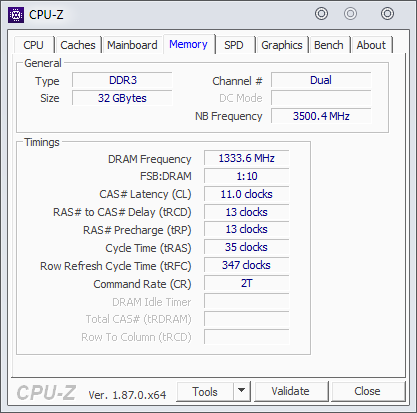-
Notifications
You must be signed in to change notification settings - Fork 117
New issue
Have a question about this project? Sign up for a free GitHub account to open an issue and contact its maintainers and the community.
By clicking “Sign up for GitHub”, you agree to our terms of service and privacy statement. We’ll occasionally send you account related emails.
Already on GitHub? Sign in to your account
[Feature request] RAM frequency / timings reading #96
Comments
Me too. In fact, I have this idea in my head for a few years, but unfortunately, this has not been implemented...
And here we go: how to get this information in Linux? |
|
Even under those circumstances for one of my machines i couldn't still get any info with all those modules and requirements met though...
Yeah, can't disagree... Have you tried to feature request Kernel devs or something of that nature?
Wow....Can you get some sources where damage is done? P.S. Thanks for all your work, CPU-X is best of it's kind! 👍 |
I agree.
No (and I will not).
Sorry; instability is more adequate than damage. |
I'am not forcing on anything, but just wonder why? |
|
@x0rg Well...Fair enough, if accidentally i'll come across hacker able to reverse CPU-Z and figure out how - i'll make sure to let you know 👍 |
|
@x0rg Maybe try contact them, if not already 😃 |
|
I think you confuse HWiNFO (Windows, closed source) with openSUSE's hwinfo (Linux, GPLv2). |
|
i am following the thread and used cpu-z a few times now while playing around with my timings (2700x ryzen on x470 asrock with 4x16gb 3200 sticks not officially "supported" by amd is tricky and each BIOS update changes things). did you consider pmbw ( https://panthema.net/2013/pmbw/ )? |
|
@mavelli It does not read RAM timings, it does performance tests. |



Is your feature request related to a problem? Please describe.
I would really love to see actual RAM timings readings, not SPD or XMP.
Describe the solution you'd like

It would be really cool if CPU-X can be first in this department, for some reason there is still no reliable way to get this information in Linux....
The text was updated successfully, but these errors were encountered: